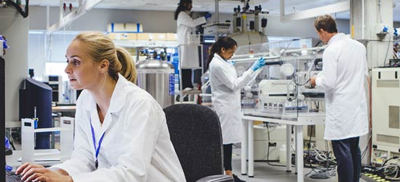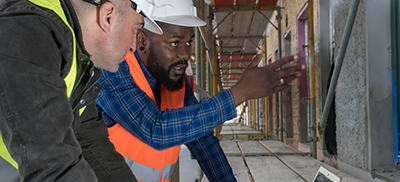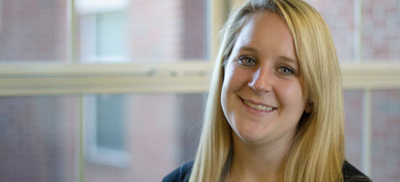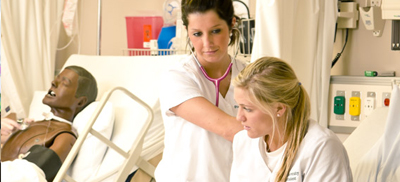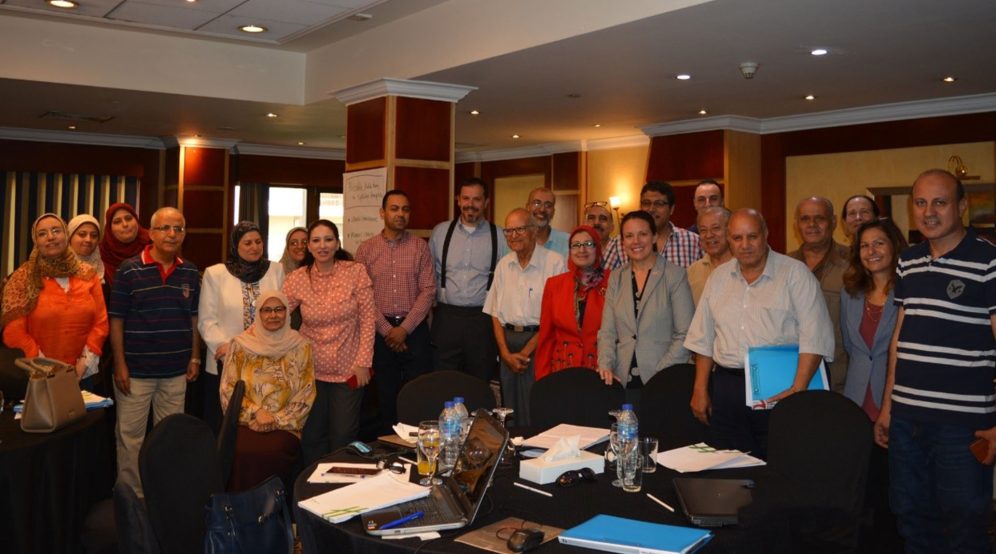This past summer, Dr. Lisa Moyer (pictured second from right), Program Coordinator for the Community-Based Education and Leadership program, began work on the project of a lifetime as she led a team to help implement STEM curriculum in Egypt.
Her work was part of an initiative by the Egyptian Ministry of Education to create several science, technology, engineering, and math (STEM) high school schools in the country. Recognizing a need to educate teachers in these areas through problem-based real world learning experiences, a grant was created to develop a one-year teacher preparation program.
As the first of many steps to prepare instructors, Dr. Moyer worked with faculty and deans from four Egyptian universities to create this program. They also look to the next step, which is the development of a four-year teacher preparation program to provide more detailed instruction to STEM educators.
Read her take on the experience below.
Why this project is so special to her: “I have a passion for education in general and making sure that all students get hands-on real world types of experiences. That is the kind of teaching and learning that meets the needs of students today . . . rather than the way we were doing it, by learning lots of facts and basically regurgitating them for a test. What students need to know is: how to find resources, how to judge them, and figure out if they’re reliable, that they’re valid, that they’re good resources, and then how to use them to solve real problems. I think that’s where education needs to be for students today, which is what really excited me about this project.”
Working in a different culture and country: “Everyone I found in Egyptian culture is very warm and welcoming. Everyone is very friendly. I was able to feed off of their excitement and enthusiasm on this project. They were very excited to be able to do this, and they’re very open to ideas. They were wonderful to work with . . . I’m used to working with teachers and faculty in the United States where educational systems have been in place for some time, and this experience of going into a new country and culture that is looking to build their education was really amazing.”
Challenges on this project: “Language translation, and their technology is not great there. So finding ways for them to connect, continue the work, and send it to me for revising, and all of that [was a challenge]. Very few of them had laptop computers, so most of this was done – which was really unusual for me to see – by somebody writing everything by hand. All of the work was done with paper and pencil at first. Then someone in the instructional technology group who had a computer would type it out. That’s when I would use Google translate and work on it that way. So that was different.”
“It was great working with them. We’ve become friends and keep in touch and I keep up with the progress. Hopefully I’ll be going back, possibly in January. They’ll have taught these courses for one semester, so we’ll be working on revisions and getting their feedback.”
How this project relates to CBEL: “Everyone that I’ve spoken to who has gotten into the CBEL program just wants to make a difference in the world. They are passionate and care deeply about whichever field that they’re in whether it’s students who are working with inner city youth, heading up huge nonprofit organizations, afterschool educators, or environmental educators. Whatever that field is, they are really passionate about wanting to make a difference in the world very similar to this project.”
Stevenson University Online is proud to offer a Master’s in Community-Based Education and Leadership, a program that supports individuals seeking to teach, lead, and manage in non-formal and informal education settings.


